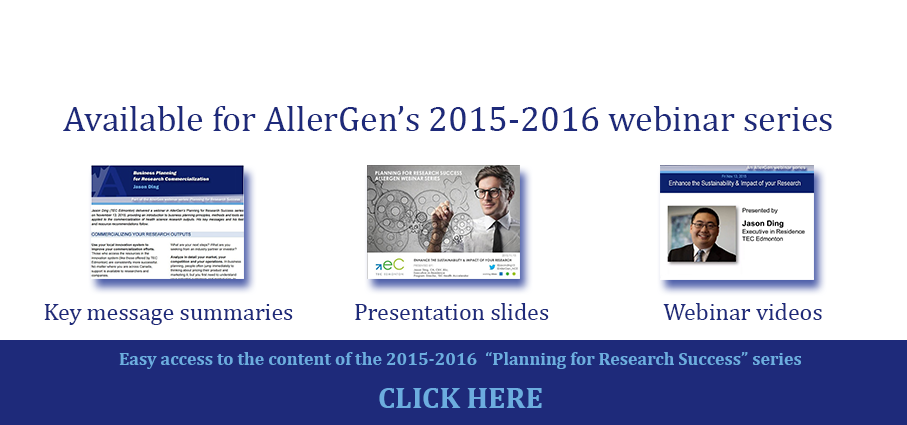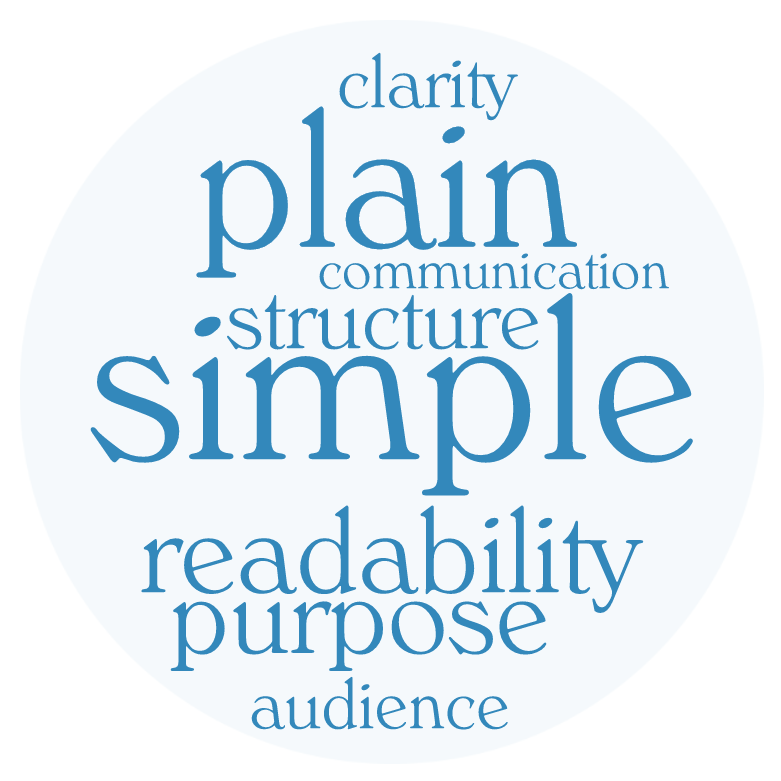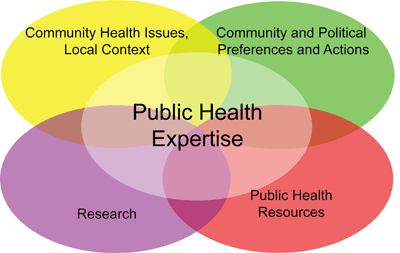
|
This webinar has already taken place. No resources are available. |
Communicating in Plain Language
with Sylviane Duval
Part of the SMRTS Seminar Series
Thursday, November 17, 2016
1:00 PM – 2:00 PM EST
In today’s innovation- and research-rich world, we need to share complicated messages with a wide range of readers, such as granting agencies, colleagues, stakeholders and the public.
On the one hand, the density of our writing styles has spiralled out of control. On the other hand, our attention spans are getting shorter. We don’t want to pore over every word to find meaning.
Documents written in plain language offer a win-win solution for readers and writers. They convey information simply and clearly, they broaden the reach of the message, and they are easy to understand.
In this webinar, Sylviane Duval will present the background to literacy and plain language. She will illustrate some basic principles at the sentence and structural levels with practical examples. These principles you can take away to improve the clarity of your writing style—and ultimately, your message.
Sylviane Duval is an independent consultant focusing on knowledge transfer, research navigation, and business/soft skills training for scientists.
Her clients are mostly university research networks and knowledge-based organizations. They benefit from a reliable, results-oriented partner who cuts through barriers so they don’t have to.
She is a co-founder of the Institute for Knowledge Mobilization, and sits on national and international boards supporting the ethical and accessible communication of science.
AllerGen is pleased to host this professional development webinar as part of the SMRTS (Sharing Multi-network Resources for Trainee Success) Seminars Program, a multi-network training initiative involving nine national and provincial organizations, including AllerGen.
Questions: info@allergen.ca

| This webinar has already taken place. Click here to access related resources. |
Getting to Impact:
Why Knowledge Translation Matters for Researchers
with Melanie Barwick
Tuesday, February 14, 2017
1:00 PM – 2:00 PM EST
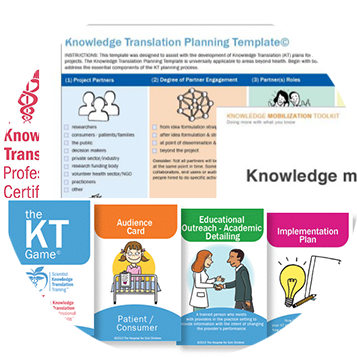 |
Traditional methods of disseminating research evidence often fail to have traction, which can mean your research goes unnoticed and has little chance of informing research, clinical practice and/or policy, or of benefiting knowledge users. This brief webinar will describe how KT is growing in importance and relevance for health researchers and will identify some tools to integrate KT into a science program. |
Melanie Barwick (PhD, CPsych) is a Registered Psychologist with a primary role as Head and Senior Scientist in the Child and Youth Mental Health Research Unit (CYMHRU) within the Department of Psychiatry at SickKids Hospital in Toronto. She is Senior Scientist in the Child Health Evaluative Sciences program of SickKids’ Research Institute, and holds appointments as Associate Professor in the Department of Psychiatry and the Dalla Lana School of Public Health at the University of Toronto.
Her focus is in implementation science, studying innovative knowledge translation and implementation strategies to facilitate the efficacy and effectiveness of research evidence use in practice across various sectors, including health, mental health, global health, and education. Her program of research explores empirically supported approaches, measures and tools to support the implementation of evidence-based practices across these multiple contexts.
Questions: info@allergen.ca

| This webinar has already taken place. Click here to access related resources. |
Integrating the Patient Voice in Health Research:
The What, Why and How
with Colleen McGavin
Wednesday, March 8, 2017
1:00 PM – 2:00 PM EST
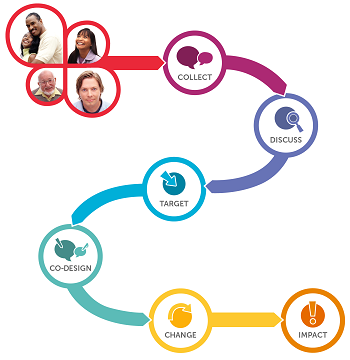 |
Including patients as partners on health research teams is an idea that is gaining ground and, increasingly, funding agencies are placing an emphasis on it. In this presentation, Colleen will talk about what patient engagement is (and isn’t), why it’s important and how BC’s Strategy for Patient-Oriented Research (SPOR) SUPPORT Unit is working to “get it right.” Graphic: compliments of Patients Canada; Design by Pivot Design Group |
Colleen McGavin is the Patient Engagement Lead for BC’s Strategy for Patient-Oriented Research (SPOR) SUPPORT Unit. Her experiences as a cancer patient and as a caregiver for her aged parents prompted Colleen to become actively involved in efforts to improve the health care system. This eventually led her to become involved in health research. Currently, she is a patient member of several health research teams and she leads the BC SUPPORT Unit’s efforts to advance the practice of patient engagement. Particular areas of interest to Colleen include: patient-centered care, patient engagement, patient-reported outcome and experience measures and patient-oriented health research.
Questions: info@allergen.ca

| This webinar has already taken place. Click here to access related resources. |
How to Effect Societal Change:
Working with the Media & Public
with B. Brett Finlay and Marie-Claire Arrieta
Thursday, March 23, 2017
2:00 PM – 3:00 PM EDT
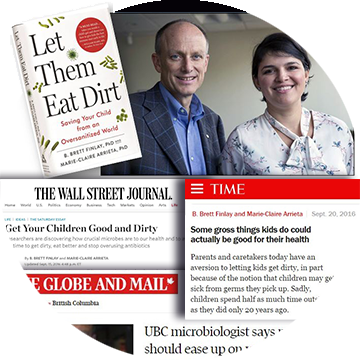 |
Major beneficial scientific concepts need to be translated to the public, yet this can be difficult. Drs Finlay and Arrieta have had recent success in dealing with the media regarding asthma and microbes, including major media attention focusing on their scientific work and their new book (Let Them Eat Dirt). They will discuss these concepts from both a Principal Investigator (Finlay) and a Postdoctoral (Arrieta) point of view, including lessons learned as well as do’s and don’ts. |
B. Brett Finlay (PhD) is an award-winning microbiologist. He is a Professor in the Michael Smith Laboratories, and in the Departments of Biochemistry and Molecular Biology and of Microbiology and Immunology at the University of British Columbia. Dr. Finlay’s research interests are focused on host-pathogen interactions at the molecular level. He is internationally recognized, has won numerous prestigious awards and is a Fellow of the Royal Society of Canada and the Canadian Academy of Health Sciences, an Officer of Canada , a member of the Order of BC, and the UBC Peter Wall Distinguished Professor. He is a strong supporter of communicating science to the public.
Marie-Claire Arrieta (PhD) is Assistant Professor in the Departments of Physiology & Pharmacology and of Paediatrics at the University of Calgary. She has been studying intestinal microbiology and immunology for the past 10 years. She contributed to the recent study conducted in the Finlay Lab connecting asthma in very young babies to missing key intestinal bacterial species—a breakthrough in the field reported by dozens of news outlets around the world in 2015.
Questions: info@allergen.ca

| This webinar has already taken place. Click here to access related resources. |
Allergy and Asthma Misinformation in Popular Culture:
Responding to the Marketing of Unproven Therapies
with Timothy Caulfield
Tuesday, April 11, 2017
2:00 pm – 3:00 pm EDT
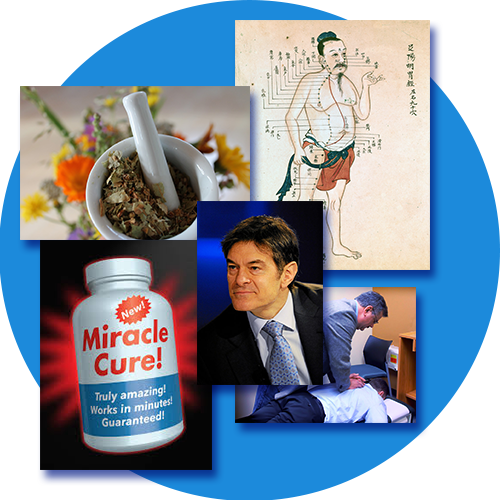 |
Misinformation about how to treat and diagnose allergy and asthma regularly circulates in the media and popular culture. In this presentation, Prof. Caulfield will review what the available evidence says about this phenomenon, and share insights from his team’s research on the services offered by complementary and alternative practitioners. He will then discuss strategies researchers can use to respond to misinformation, taking into consideration relevant laws, policies and science communication strategies. |
Read Prof. Caulfield’s AllerGen-sponsored research on this topic; view his related Sciencing Health Video.
Timothy Caulfield (BSc, LL.B., LL.M.) is a Canada Research Chair in Health Law and Policy and a Professor in the Faculty of Law and the School of Public Health at the University of Alberta. He is a Fellow of the Trudeau Foundation and the Principal Investigator for a number of large interdisciplinary projects that explore the ethical, legal and health policy issues associated with a range of topics, including stem cell research, genetics, patient safety, the prevention of chronic disease, obesity policy, the commercialization of research, complementary and alternative medicine and access to health care.
Professor Caulfield writes frequently for the popular press on a range of health and science policy issues (just Google him) and is the author of The Cure for Everything: Untangling the Twisted Messages about Health, Fitness and Happiness (Penguin 2012) and Is Gwyneth Paltrow Wrong About Everything?: When Celebrity Culture and Science Clash (Penguin 2015).
Questions: info@allergen.ca

| This webinar has already taken place. Click here to access related resources. |
Knowledge Transfer to Support
Evidence-informed Health Policy
with Maureen Dobbins
Monday, May 8, 2017
2:00 pm – 3:00 pm EDT
Maureen Dobbins (RN, PhD) is a professor in the School of Nursing at McMaster University. Her research efforts seek to understand knowledge translation among public health decision makers in Canada. Her program of research has: identified barriers and facilitators to research use; explored the information needs of public health decision makers; and developed, implemented and evaluated a variety of knowledge translation strategies for public health decision makers. Since 2001, she has been the Director of Health Evidence, a single source of high-quality effectiveness evidence and one component of a comprehensive knowledge translation strategy for public health decision makers worldwide. Since, 2011, Maureen has been the Scientific Director of the National Collaborating Centre Methods and Tools, one of six National Collaborating Centres for Public Health in Canada. The NCCMT provides leadership and expertise in helping public health professionals put research evidence into policy and practice.
Questions: info@allergen.ca
Participation Information
Joining and participating in an AllerGen webinar is simple and intuitive, and you will be emailed instructions. The information below is provided so you know what to expect, and for those who like to be prepared well in advance.
Where do I have to be? What device or equipment will I need?
To participate in an AllerGen webinar, you need to set yourself up at a computer (PC or Mac) or a mobile device with Internet access (high-speed and wired is recommended, rather than WiFi). The visual presentation will appear on your monitor/screen. For the audio, you can either use your computer/device’s capacities (a headset with a microphone is recommended), or call in by telephone (instructions for this will be provided in an email prior to the event).
What platform will we be using?
The webinars will be delivered using GoToWebinar. You will be required to download software onto your computer or mobile device in order to participate. You can download the software in advance anytime by following these instructions, or you can download the software when you join the webinar.
How do I join the webinar?
Upon registering, you will receive an email with instructions and a link to follow in order to join the webinar.
How do I take part during the webinar?
As an attendee of the webinar, you will be able to view and hear the presentation, and you will have access to a control panel by which to electronically “raise your hand” or type a question. The organizer can then transmit your question to the presenter, or unmute you to allow you to speak.
Can you provide me with even more preparatory information?
Of course! Here is an Attendee Guide in PDF, and here is a QuickStart video for attendees, both from GoToWebinar.


